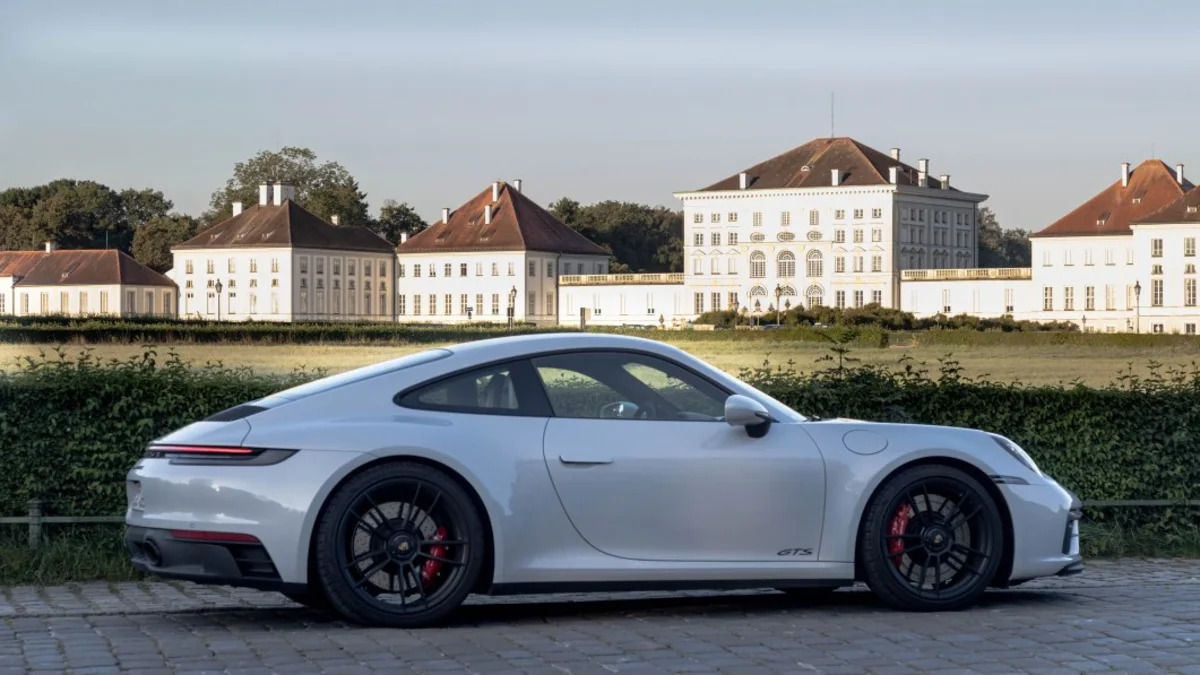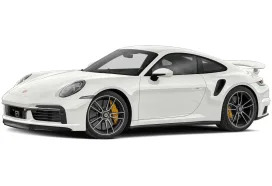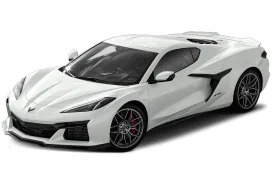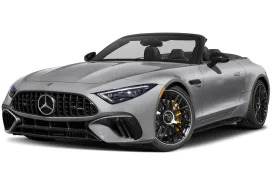MUNICH — Spending a week with a 2023 Porsche 911 Carrera 4 GTS in Munich turned out to be 473 horsepower of the expected yin and a steaming pile of yang. The yang had nothing to do with the Porsche.
But let's start with the sweetness embodied in this Ice Grey Metallic coupe. By now, we all know enthusiast scribes get the zoomies worse than a husky in winter's first snow over four things: lightness, manual transmissions, brown wagons, and Porsche 911s. I got two of them in this car.
The thing about the 911 is that almost everything said about it is true — at least, true enough to be a useful generalization. Sarcasm over the Darwinian pace of mutations? The cynic's take on sticker packages and relentless special editions? Invective about the owners? Horror at the fantastically atomized and traumatically expensive options menu? All true enough.
Because the 911 embodies its own yin and yang, the other side deserves an audience; there are dynamic sacraments absolving supposed sins. Preternatural steering sharp enough to convey the water content in the asphalt? Acceleration that prioritizes usable handling and grip over spreadsheet stats? A high-rev exhaust squall so addictive Big Pharma would pay doctors to prescribe high dosages if such were possible? All of these are also true enough. The balance has changed since the analog days — better handling, worse exhaust note, for instance — but the 911 has always been about the comprehensive grade, and today, as back then, Stuttgart engineers mingle at the head of the class.

Some demerits I could charge against the GTS could just as easily be taken as a compliments. Specifically, around town, it's all relaxation and composure with zero sense of occasion. The easiest way to remember you're in a 911 is to look at the people outside looking at your 911.
On the smooth, snaking roads between German towns, the GTS maintains the same demeanor – it's just quicker and louder about it. Staggered 20- and 21-inch “Turbo S” wheels clinging to staggered, sticky rubber weren't going to come undone short of velocities that would have had speed cameras flashing like paparazzi at the Berlin Film Festival.
The only genuine dent in the armor was the exhaust note, done additional disservice by Europe's mandated gas particulate filter. Over a surprising range of steady-state speeds, it was endlessly monotonous.
And Porsche should sell each 911 with a flask, because the only driver-accessible cupholder holds more disdain than liquid.

Enough of that. This thing is grand. When colleague Byron Hurd reviewed the 2022 GTS, he called it "Just shy of perfect," his archetype of perfection being a GT3. I call that an honest and reasonable assessment, and I agree with it. If you want the ultimate modern and subtle 911 daily without the playboy flamboyance of the Turbo or the arrogant flamboyance of the GT cars, the GTS marks the X that marks the spot. Especially if you live somewhere you can regularly run 160 mph on a four-hour road trip.
In keeping with Mr. Hurd's financial wariness about the cost of perfection, I nominate a different paragon of the ideal, though: A previous-generation 911 that's lighter, rawer, more alive. I admit to this being a fallacious and unreasonable assessment. Life, like a 911, isn't meant to be enjoyed in reverse, so my thousand-yard-stare into the rearview mirror is a waste of time. Instead, I would likely be better served looking to the left, at the lighter, rawer, and admittedly less powerful 911 Carrera T.
Sad thing is, I wouldn't look at either car if I had to have them in Munich again, which brings me to the hot, heavy paper bag full of yin I experienced over those seven days. The worst part of having a GTS for a week in Munich was not wanting to drive the GTS in Munich.
I've been writing for years about how European cities have taken up battle against climate change, with weapons including stringent emissions legislation, exclusive emissions zones, congestion charges, diesel bans, and the impending ostracism of the internal combustion engine. I think this Munich trip was my first intense experience of it, and it wasn't fun. Until I was headed out of Munich, the car spent most of its time here:

Let me make the first of three interjections. Munich, with Germany's densest population, has been a haven for molasses traffic for a while, and roped off a special emissions zone downtown in 2008. In 2010, global traffic survey company INRIX listed Munich sixth on the list of German cities with the worst congestion.
Despite that, this was the first time I decided to drive as little as possible, and I've been hanging out with cars in Munich for 20 years. There was more traffic throughout more of the day, moving even more slowly than I remembered. There were strangely placed and frustratingly low speed limits. The closer I got to downtown, the worse it got. There were road works in the strangest places, some of them looking arbitrary or abandoned and requiring ungainly detours. Dawdling there felt like getting around the west side of Los Angeles, where you accept that an eight-mile trip is going to take an hour assuming everything goes well.
Munich's always been a bike town and everybody gets along with it. But there were new bike lanes flowing with cyclists and scooter riders who made every right turn a chance to get charged with vehicular manslaughter. I rode a bicycle for years; I'm fine with giving the right-of-way. But the hordes were effectively another lane of traffic between me and a right turn that usually lacked measures to make sure vehicles could turn safely. And the 911 doesn't offer the most generous three-quarter view.
On my third day in Munich, I took a trip out of town with a local friend to Sternbergersee. As we hit the highway — then had to slow down to 80 km/h on a four-lane-wide stretch of Autobahn for no discernible reason — I asked her, "Has traffic in Munich got worse?"

She turned sideways in her seat to face me, took a deep breath, and said, not exactly at conversational volume, "Yes. It's the Greens. It's terrible."
She was talking about the governing political coalition, making the lengthy and excited point that the Greens had made driving nearly unbearable in their efforts to deal with climate change.

The 2R bisects BMW headquarters and makes a ring around Munich
Time for my second interjection: I'm all for electric vehicles and had my house wired up with a charger last year. I'm an even bigger fan of clean air, clean waterways, clean power. I love the word "sustainable." I don't have enough thumbs to show how much I upvote a clean Earth.
However, certain implementations in certain places have made me wonder about the means being enacted to create and/or ensure one. Munich isn't the first time.
I asked two other friends, Munich locals, the same question. Both told similar tales of political action and confounding traffic measures. I saw how seriously one of them took it when I had to return the key to the apartment I'd been staying in.
I usually stay on the west side of town by Nymphenburg Castle and BMW Welt (pictured above) where the 2R thoroughfare is a well-used connector. My friend who needed the key had a brisk response to that plan: “I don’t want you to have to cross town.” He told me to instead leave the key with a friend of his on the west side and he'd pick it up whenever he was over that way.
If “do not drive” is the next phase of what I've been writing about, or, heaven forbid, the endgame … well … wow.
Which brings me to my last interjection: I have to say again that I think this trip was my first experience with climate action's confounding effect on traffic. That conclusion is based solely on anecdotal evidence from my friends. So far, I can't find any English-language reporting relating the two. Munich’s traffic has got worse, though, regardless of the cause. In 2016, an INRIX survey put Munich eighth on the list of European cities with the worst traffic jams, third-worst in Germany after Karlsruhe and Stuttgart. Another INRIX study the same year named the 2R, near my regular haunt, as the second-worst traffic hotspot in Germany. In 2022, Munich won the cup. INRIX's 2022 Traffic Scorecard named Munich the worst in Germany for the number of hours the average driver loses to traffic every year and the slowest last-mile average speed in town.
I'm going back to Europe for an extended stay over the summer, and there will be a few weeks in Munich and around Germany. I'm going to try to connect some whats with some whys while there. And this time, if I end up with another car as cool as the GTS, I'm going to park outside town and ride a bicycle in.






Sign in to post
Please sign in to leave a comment.
Continue